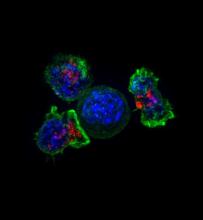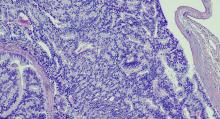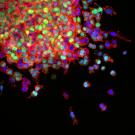News
Year in Review: 2016
2016 has been a year of growth, partnerships and progress at the Helen Diller Family Comprehensive Cancer Center. Our researchers and clinicians, patients and families, community groups, and government and industry partners continued working to make cancer a manageable disease. Please take some time
Many Safety Net Patients Don't Complete Colonoscopy after Abnormal Stool-Based Colorectal Screening Test
Nearly half of the patients in a safety net health system who had an abnormal stool-based screening test for colorectal cancer failed to receive the recommended colonoscopy within a year, despite the benefits of an integrated health care system with access to colonoscopy and shared electronic health
Community-based Health Outreach Increases Chinese-American Colon Cancer Screening Rates
Education by community-based non-professional health workers significantly increased colorectal cancer (CRC) screening rates among mostly non-English-speaking, older Chinese-Americans in San Francisco, according to a study led by researchers at UC San Francisco. Distribution of a brochure on CRC
New Targeted Chemotherapy Technology Proves Effective in Mice
UC San Francisco researchers have developed a new variety of targeting system for chemotherapy drugs based on the unusually high free iron content of many cancer cells — distinct from the protein-bound iron that is common throughout the body’s cells. In experiments in mice and cancer cell lines, the
Before the Cures: Preventing Cancer
In the summer of 2016, the Centers for Disease Control and Prevention reported that cancer had surpassed heart disease as the leading cause of death in California and 21 other states. The news was particularly distressing given increased awareness that “Up to half of cancers could be avoided if we
Adolescent Perceptions about Smoking Have Changed Over Decade
California adolescents perceive smoking cigarettes to be riskier – and less socially acceptable – than they did a dozen years ago, according to a new study that comes amid a changing tobacco product landscape. Fewer youth plan to smoke or think smoking makes them look mature, reported the study by
Mutant Protein Linked to Spread of Lung Cancer within the Body
The ability of lung tumor cells to spread rapidly within the body makes lung cancer difficult to eradicate and contributes to its status as the leading cause of U.S. cancer deaths in both men and women. But according to a new study led by UC San Francisco scientists, the cancer’s ability to spread








